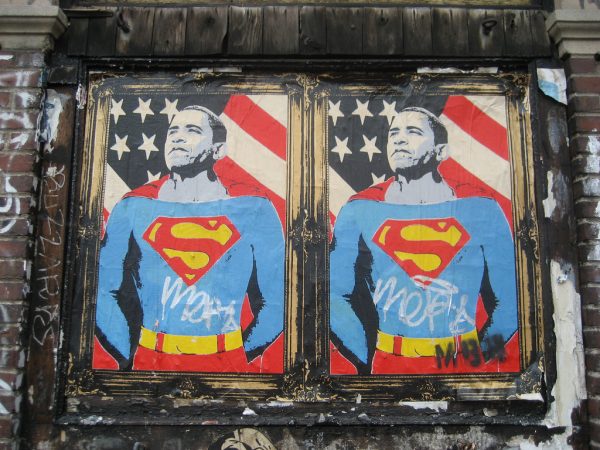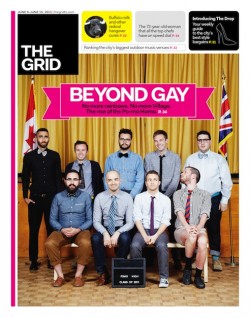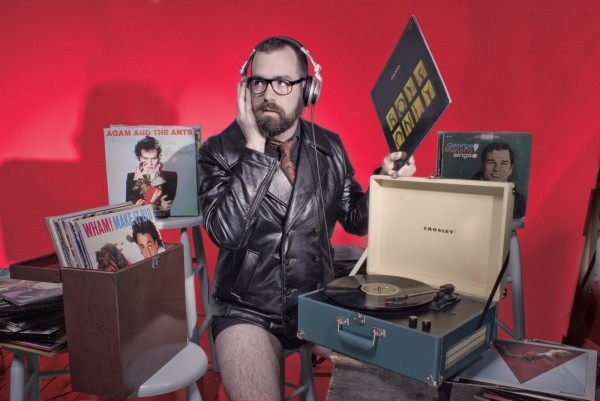Forgive me the stream-of-consciousness writing that is this blog post.
I’ve spent the past few days writing an essay about Barack Obama’s progress on gay rights. It’s a frustrating task to undertake (especially in light of the events I’m about to write about). I like Obama and I think he’s made great strides in gay rights (#1 being the repeal of Don’t Ask, Don’t Tell, although this will be more impressive when the law is actually overturned.) Every victory comes with such bewildering frustration, and this past weekend was only one example.
On Friday, at Netroots Nation (a convention for progressive thinkers), White House communications director told an interviewer that Obama wasn’t responsible for filling out a 1996 survey that said Obama supported gay marriage. This survey, taken when Obama was running for the Illinois State Senate, is damning to Obama on the topic of gay marriage considering that, come 2008, he was against the idea, stating largely religious concerns. (Making our incredibly smart president the latest in a series of people completely ignorant about what the “tradition” of marriage actually is.) Shortly after Pfeiffer made his statements, the White House released a statement noting that Pfeiffer didn’t know what he was talking about. Then they insisted that Obama meant to say (way back in 1996) that he supported civil unions.
It’s this kind of waffling, backtracking, and pure lies on the behalf of the administration that make Obama such a frustration to the gay community. The essay that I’ve been writing was largely meant to be a positive one, a followup to my 2009 essay “The Disillusionment of a Young Gay Democrat.” It’s impossible to stay positive, though, in the midst of the Obama administration’s biggest flaws.
Last week, we had a coffee talk on the issues and what they mean to our communities. It was a small turnout, but the conversation was good. DJ Kaiser, Mr. Missouri Leather, had come to co-host and I think a good part of the talk was a debate between the two of us on what labels mean. I thought a lot about that conversation while re-reading Paul Aguirre-Livingston’s essay Dawn of a New Gay on the website for Toronto-based magazine, The Grid.
In the essay, Aguirre-Livingston writes about life for him and his friends—a largely upper-class living where they aren’t faced with persecution and can’t identify with the homos of the past because they have everything they want. He makes the unfortunate mistake of failing to properly contextualize the article though and writes as though he’s speaking for an entire generation.
Forty years after the Manifesto and the infamous Stonewall Riots in New York City, a new generation of twentysomething urban gays—my generation—has the freedom to live exactly the way we want. We have our university degrees, homes and careers. In Toronto, we’ve abandoned the Church Wellesley Village. We’re tattooed and pierced and at the helm of billion-dollar industries like fashion and television. We vacation with our boyfriends in fabulously rustic country homes that belong to our parents, who don’t mind us coming to stay as a couple. Hell, we even marry our boyfriends, if we choose to, on rooftops overlooking Queen West. Our sexual orientation is merely secondary to our place in society. We don’t need to categorize or define ourselves as gay, and who we sleep with—mostly men and, hey, sometimes women—isn’t even much of a topic of conversation anymore. The efforts of Wittman and his peers produced a whole new type of gay. Say hello to the post-modern homo. The post-mo, if you will.
There’s so much to disagree with in Aguirre-Livingston’s article (and the gay blogs have been doing it loudly and repeatedly since the essay’s release, as have the 150 pages of comments on the original article), but I can’t help but think that so much of this comes down to a misunderstanding about what the word “gay” means. I’ve used the word “gay” to describe myself for something like seventeen years now. Not once has it meant that I had to like musicals (although I do like some of them), listen to Barbara Streisand (I haven’t, and don’t) or plaster my car with rainbow stickers (I haven’t, and dont, although I do have a simple “I support gay marriage” sticker on my car.) For me, “gay” has only ever encompassed the fact that I’m attracted to men, that I have crushes on men, that I fell in love with a man, and that I have sex with a man.
Forgive me this short aside: a few weeks ago we were on a float trip with a large group of friends. My partner, Evan, and I have what we call a “rollercoaster song,” that we sing on—wait for it—rollercoasters. During the float, we decided to sing this song while we were on the river. From behind us, our friends yelled “You’re gay!” (Trust me, they meant it lovingly.) I turned to Evan and said “I’m pretty sure that singing a song doesn’t make you gay. I think the fact that I suck dick makes me gay.”
Being gay has never meant more than that for me. I understand that there are a lot of identity politics wrapped up in labels and that they can, in fact, mean other things. I recognize that these identity politics are important to people. I recognize that there are stereotypes that go along with the word, but I don’t think there’s anything inherent about those stereotypes in the word itself. If someone assumes that I like Barbara Streisand just because I tell them I have a thing for dudes in jock straps, well… so be it. I don’t have a problem being mistaken for a Barbara Streisand fan, I’m sure there are a lot of perfectly nice Streisand fans out there.
1ho·mo·sex·u·al
adj
\ˌhō-mə-ˈsek-sh(ə-)wəl, -ˈsek-shəl\
1
: of, relating to, or characterized by a tendency to direct sexual desire toward another of the same sex
2
: of, relating to, or involving sexual intercourse between persons of the same sex
Everything else is cultural.
If you’re looking for a good response to Aguirre-Livingston’s article, check out Matthew Lawrence’s response on his blog, Mixtapes for Hookers:
One of the nine men photographed for the article is a 21-year old who looks more or less like a lot of other gay people and who could easily be described as a cub, to use common gay parlance that has existed since probably before he was born. “I always enjoy people’s accusation that ‘You can’t be gay’ because of my appearance, my tastes (in music, wardrobe, etc.) and my personality,” he says.
I too can attest to the fact that it is sort of amusing when my gayness surprises people, and while college-aged people tend to be kind of absorbed with the idea of their own uniqueness, this man is a cub in a fucking bow tie who lives in the fifth-largest city in North America. Get over yourself, I wanted to tell him! Your Deerhunter MP3s do not make you any less gay than that other guy’s Rihanna remixes. And seriously, son, you look pretty gay. –Apathetic Rich White Gay Man Thinks More People Should Be Apathetic Rich White Gay Men
I’m still looking for anyone else who would like to do a guest essay for gay pride month on our blog here. Send me an e-mail if you’re interested. If you haven’t checked out our last essay, make sure you do. It’s called Bodies, Bodies, Bodies! Gender-Inclusive Sex-Positivity, and Andy Semler knocked it out of the park with that one.



YOU’RE GAY! But srsly, that roller coaster song is so cute. It’s only gay when you start singing it while sucking dick (while on a roller coaster, if you can get away with it).